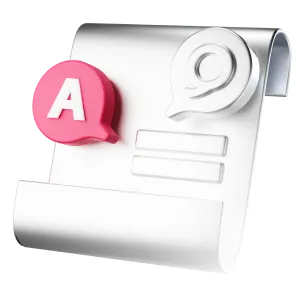Engine oil cooler replacement costs are around $500 with a range of $200 on the low end to over $900 on the high end. Pricing will change depending on your vehicle, location, and the type of replacement cooler you choose. Related repairs may also be needed, which could add to the cost.
How much does an engine oil cooler replacement cost?
On its own, pricing for a new factory-style or original equipment manufacturer (OEM) oil cooler depends largely on your vehicle and the quality of the part you choose. For example, Evil Energy manufactures a popular, low-cost, universal replacement oil cooler, ranging in price from about $60 to $120 depending on size. Meanwhile, a Dorman high-performance 918-402 oil cooler — more typical of the type sold and installed by mechanics — costs upwards of $400.
A case for “bulletproofing”
Mechanics generally agree it’s best to stick with OEM parts for vehicle repairs — engine oil cooler replacements included. But if you drive a Super Duty equipped with Ford’s 6.0L Power Stroke® diesel engine, you may want to “bulletproof” it.
Replacing the OEM oil cooler with an aftermarket BulletProof Engine Oil Cooler is the first step toward “bulletproofing” your Ford 6.0’s engine against the chronic — and catastrophic — EGR cooler failure plaguing this powerful yet flawed motor. But it’s not the last, and it’s not the least expensive.
BulletProof engine oil coolers range in price from $2,000 to $2,500 not including parts and labor. Certainly more expensive than an OEM oil cooler, but much less expensive than the bent connecting rods, stretched head bolts, or blown head gaskets that can result if a clogged oil cooler leads to EGR cooler failure.
Of course, BulletProof oil coolers aren’t just for Ford 6.0s, but they are only made for diesel engines.
Pro Tip: Most oil coolers are sold as a kit with gaskets and O-rings included; however, if you have to replace your oil cooler line, you should plan for at least an added $30 to $60 in parts.
If you choose to have a mechanic install your new oil cooler, you’ll also be looking at labor costs. Yelp estimates a fair average labor rate of anywhere from $75 to $125 per hour at an independent auto repair shop while dealerships usually charge $125 to $175 per hour.
How long does it take to replace an oil cooler?
Like the cost, the length of time it takes to complete an oil cooler replacement will depend a lot on your vehicle and the type of oil cooler replacement you choose.
If you have a dedicated oil cooler mounted in the front of your engine bay, replacement could take just an hour or two. However, if your oil cooler is part of the radiator, or it’s mounted in a location that requires removing body panels to access it, you could be looking at as much as 8 hours for the job.
How do you know if your engine oil cooler needs to be repaired or replaced?
The first thing you need to understand is that some vehicles do not have oil coolers. They’re most commonly found on heavy-duty pickups, high-performance vehicles, and semi-trucks — vehicles with high-power engines designed to wring out every last bit of horsepower and torque.
Make sure you know what system your vehicle uses to maintain engine temperatures before authorizing car repairs or attempting maintenance on the engine cooling system.
How are engine oil cooler issues diagnosed
Tell-tale signs your engine oil cooler may be failing include:
- Check engine light.
- Low oil light.
- Low oil pressure light.
- Engine oil temp light.
- Engine overheating.
- Engine knocking.
- White exhaust smoke.
Unfortunately the above can also be symptoms of seemingly countless other issues, which is why a failing oil cooler is most easily diagnosed if it’s also leaking. If no leaks are present, your mechanic will begin diagnostics by checking the following components first:
- Engine oil temp sensor.
- Engine oil pressure switch.
- Engine oil level sensor.
If all are functioning properly, the mechanic will begin troubleshooting by backflushing the engine oil cooler to check for clogs. If your oil cooler has bend fins (thin strips of metal that allow for heat transfer across their surface area), your mechanic will check to ensure they’re not pressed flat. In some cases, straightening the fins may be enough to salvage the cooler and lessen repair costs.
Pro Tip: If you’re an aficionado who power washes their high-performance engine for car shows, your “failed” engine cooler may actually just be a symptom of bent fins blocking airflow and reducing cooling efficiency. You can use a radiator comb to try repositioning the fins on your own.
Diagnosis is where a lot of extra costs can come into play, but it ideally leads to discovery of a repair that can be made rather than a replacement needed.
Can you replace a faulty engine oil cooler yourself?
As long as no body panels need to be removed and your oil cooler is not a part of your radiator, engine oil cooler replacement is fairly straightforward, even for the beginning DIYer. However, if your engine oil cooler is not easily accessible at the front of your engine bay, it’s best to leave this job to the pros.
If you decide to try replacing your oil cooler yourself, first, make sure you have some basic tools, like a set of line wrenches, screwdrivers, and pliers and oil to top off your engine once the replacement is complete. Then remove the oil cooler from its mounting and fasteners, disconnect the oil cooler lines, discard the old cooler and reverse the process to hook up the new one.
Once the new oil cooler is installed, the engine oil system is flushed, drained, the oil filter replaced, and the system refilled with clean oil.
If the oil cooler is part of the radiator, replacing it also requires the radiator to be flushed and removed before the cooler can be replaced. Then, the radiator must be refilled and bled. This is a complicated process, which is why it should be left to a certified technician.
FAQ
-
Can you drive with a faulty oil cooler?
-
How serious is an oil cooler leak?
-
What does an engine oil cooler do?

Sarah Gray is an insurance writer with nearly a decade of experience in publishing and writing. Sarah specializes in writing articles that educate car owners and buyers on the full scope of car ownership—from shopping for and buying a new car to scrapping one that’s breathed its last and everything in between. Sarah has authored over 1,500 articles for Jerry on topics ranging from first-time buyer programs to how to get a salvage title for a totaled car. Prior to Jerry, Sarah was a full-time professor of English literature and composition with multiple academic writing publications.

Kevin Berry is the Senior Director of Content at Jerry and has been working in the digital content space since 2011 across the car insurance/repair, personal finance, travel and sports industries. Prior to Jerry, Kevin was a content team lead at NerdWallet overseeing the Multimedia Production and Travel Rewards teams. Previously, he worked for NBC Sports, Comcast Cable and Nike. He has a Master`s Degree from Arkansas State and a Bachelor`s from Oregon State University.
*The price information provided on our car repair webpages is intended for general informational purposes only. Actual prices for car repair services may vary based on various factors, including but not limited to the make and model of your vehicle, the extent of repair required, and the prevailing market conditions. All prices for real repair shops are estimations based on our research only. Therefore, the prices listed on our webpages should not be considered as final quotes or binding offers.








